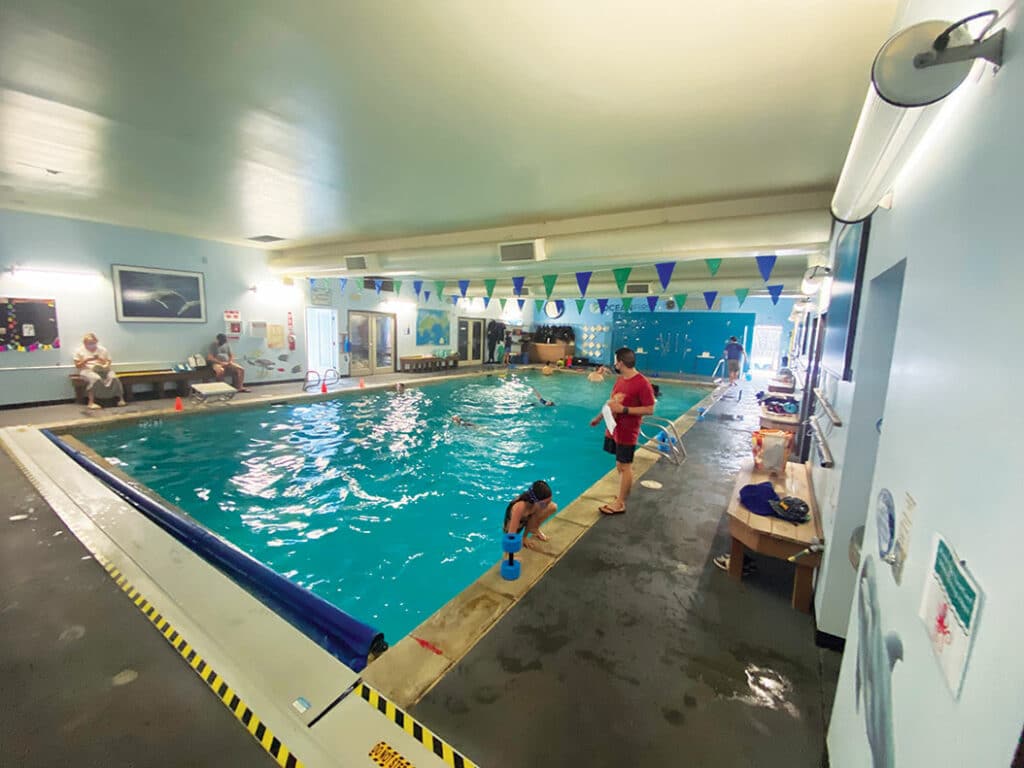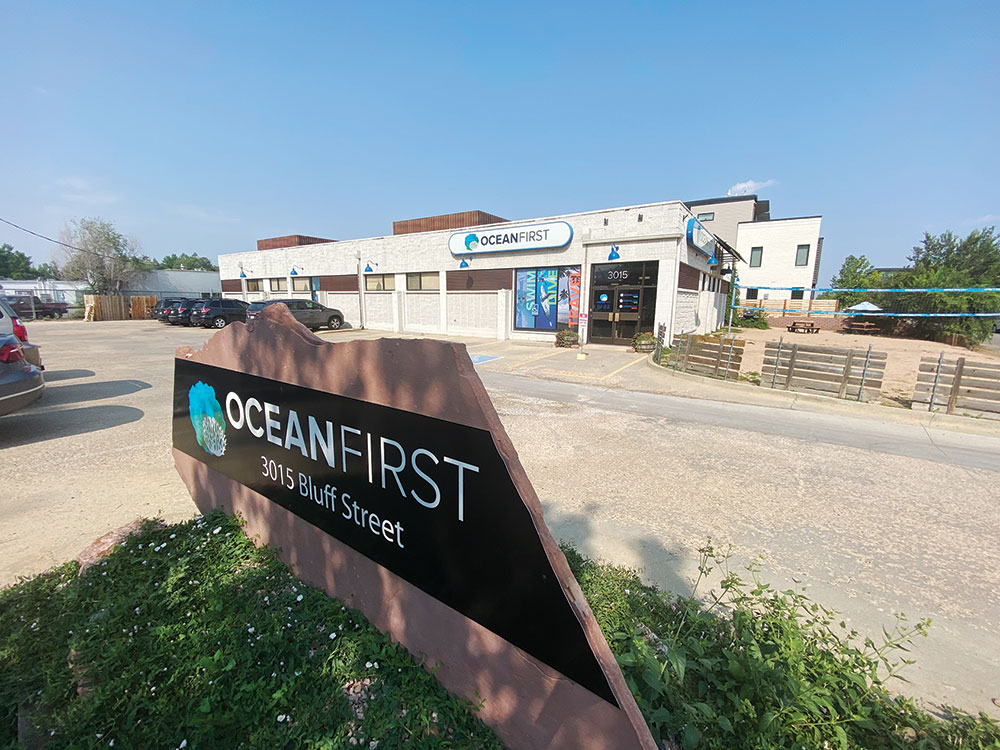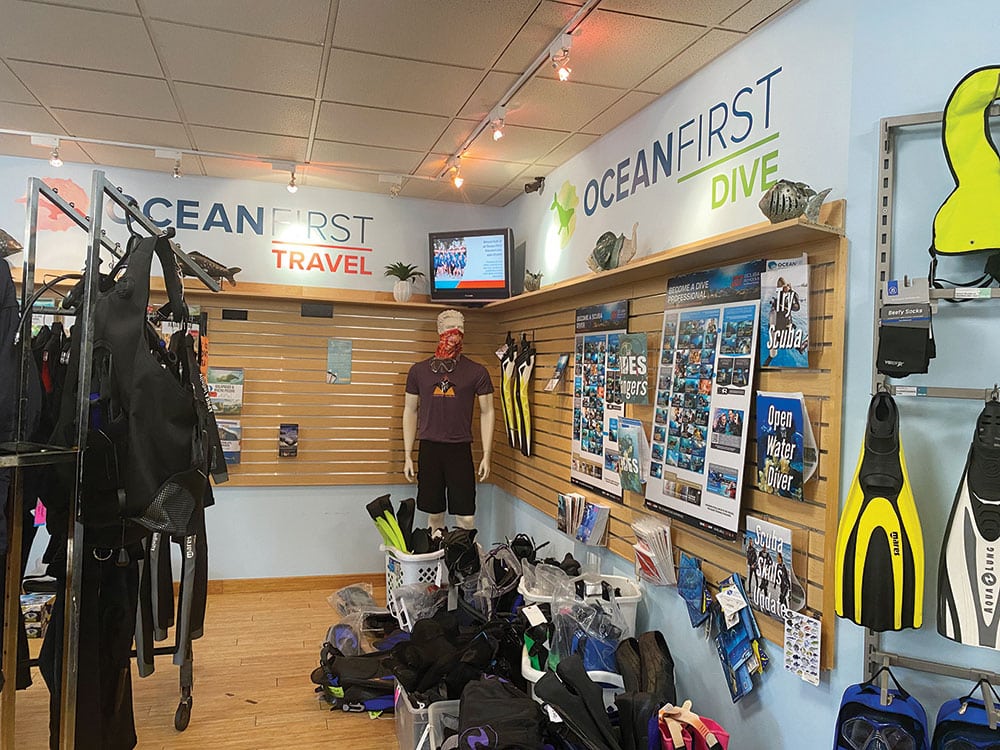I used to belong to a snow skiing club in Pensacola, Florida. We had a ton of members. Weird, huh? Not really. One of the dudes in the club told me that Florida has the most skiing clubs in the country, and Colorado has the most scuba diving clubs. I’m not sure if he was right or wrong, but he said it with such conviction that I believed him.
A quick internet search (which has to be true, right?) reveals that Colorado has more certified scuba divers per capita than any other landlocked state and fifth most in the country. Maybe it’s like this: people who are freezing their patooties off in Colorado in January daydream a lot about hot sandy beaches and total submersion in the warm ocean, and those of us in Florida, who are sweating like a sumo wrestler in a Walmart parking in July, wish we could be zipping down a mountain covered in epic white flakes. (Editor’s note: that’s what really rad skiers and snowboarders call “snow”.)

So, if you’ve ever thought about starting a scuba diving shop — and I mean who hasn’t — and you were thinking that Miami or San Diego or maybe Honolulu would be a good location, then you’d just be fooling yourself. No, you need to be thinking of places like Boulder, Colorado, where the air is parched and the good citizens are just itching to go underwater and blow some bubbles.
I’m just assuming that was the logic a nice fellow named Graham Casden had when he bought a dive store in Boulder 14 years ago. A transplant from Southern California, Casden has the air of a Tony Hawk surfer dude. He’s thin and lanky, smart and confident, and, of course, wears beige sneakers. He’s the total package.
Casden left the beaches and sunsets of SoCal to attend the University of Colorado in Boulder and decided to stay for a while. Then he bought a dive shop. Under his guidance, he’s built his dive store — called Ocean First, even though it’s 1,500 miles from any sort of ocean — into the second largest Scuba Schools International dive center in the United States. With just under 1,000 dive shops scattered across the 50 states, the fact that Ocean First certifies more than 1,500 divers per year is a testament to his business savvy and understanding that teaching diving isn’t just about jumping into a swimming pool and breathing underwater. Casden has become an educator. Ocean First has grown out into three separate companies, the others being Ocean First Education, which develops marine science curricula for K–12, and Ocean First Institute, a 501(c)(3) that focuses on conservation through research and education.
“When we dive beneath the surface,” Casden said, “we experience this entirely new and foreign universe. Most of us want to know what we’re seeing, so we offer extensive marine science learning opportunities. It’s a foundational aspect of our business.”
The formula worked so well that Ocean First Education began offering their curriculum, not only to divers-in-training, but also to students in K–12 schools. Soon, students and teachers in 35 states were using it. Two years ago, the Guy Harvey Ocean Foundation took notice, which led to a partnership with Ocean First Education to expand and enhance their marine science offering. They added the sizzle of the GHOF’s rich library of videos, photography and, of course, Guy Harvey’s iconic art to their marine science and conservation content.
“There was no need for us to reinvent the wheel,” said Dr. Harvey, “when Ocean First Education had already developed this incredible curriculum that meets state and national standards. We just integrated our assets and tried to make a great educational experience even better.”
So far, the strategy is working. The rebranded GHOF/Ocean First marine science curriculum is spreading across Florida like a sticky heat wave, and teachers from Key West to the Panhandle have embraced it.

Training pool 
Ocean First Headquarters in Boulder, Colorado 
Ocean First’s retail shop
“We want to make sure we get it right in Florida,” Dr. Harvey said, “then roll it out to anyone and everyone who wants it. Not only that, but we believe the courses should all be free, so there will be no barriers to students and teachers to learn the importance of protecting our vital marine environment.”
Enter Cathy Christopher, OFE’s director of education. A former teacher who lived in Florida for 17 years, she now endures Colorado’s snowy winters. Along with Casden, Christopher is the braintrust behind the K–12 education curriculum.
“It’s true, I don’t like the cold weather,” Christopher said, “but I moved from Florida to Colorado because I’m passionate about education and conservation, and the program we’ve developed is one of the best in the world. Plus, Graham is nice enough to let me lead dive trips to warm, exotic places when it’s freezing here.” Did I mention that Casden is also gracious?
The partnership between the GHOF and OFE is also expanding. Christopher is curating new educational content each day, increasing the free offering to students and teachers.
“We’re working with organizations like Bonefish & Tarpon Trust and Florida Fish and Wildlife Conservation Commission,” she said, “and taking the excellent content they already have and making sure it meets state and national standards before we make it available to the public.”
It’s a match made in, well, Colorado and Florida, between divers, fisherman and even snow skiers, with the goal of promoting marine conservation, education and good environmental stewardship. So, the next time you go to Colorado to snow ski, you should think about getting scuba certified. I know this cool place in Boulder I can recommend.

For the past 25 years, Fred D. Garth’s articles have appeared in numerous books, magazines and newspapers around the world.







